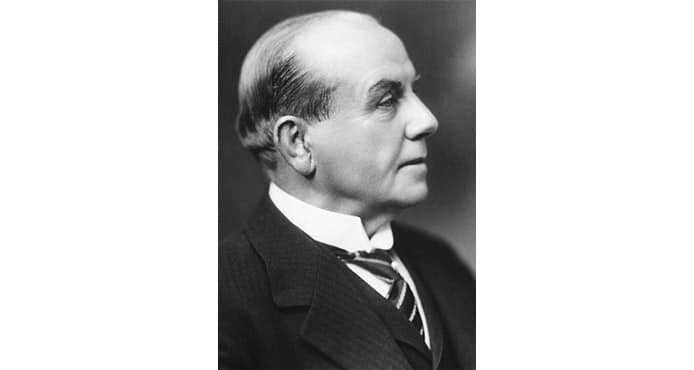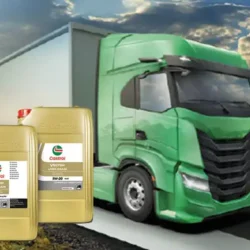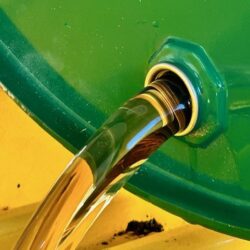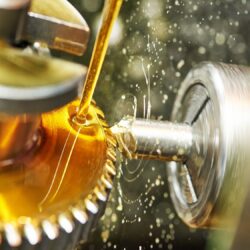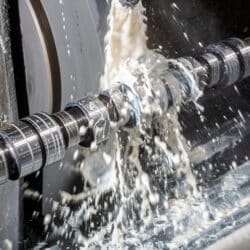Charles Wakefield – The Man Behind The Castrol Brand
Introduction
2024 signifies an astonishing milestone year for Castrol as it celebrates its 125th anniversary. On the 9th March 1899, CC Wakefield & Co was founded by Sir Charles “Cheers” Wakefield in London.
With this year being such a poignant year, we thought we would pay our own tribute to Castrol and its founder by taking a trip down memory lane to look at the man behind the iconic brand and peek into his life.
Prologue
On 9th March 1899, Charles ‘Cheers’ Wakefield set up an oil company in London, England. Ten years later, he produced a pioneering new lubricant that he called Castrol. Little did he know that this new lubricant would revolutionise transport for the next 125+ years.
Castrol oil has become synonymous with performance boasting an impressive list of world speed and endurance records. It is also synonymous with motor sports with exposure across almost all arenas of powered sport. From Malcolm Campbell’s land and water speed records, Captain Alcock’s non-stop Atlantic flight, right through to today and the Mars Rover, Castrol has remained at the cutting edge of technology. With unparalleled quality and exceptional performance, Castrol oil remains the number one choice for performance motoring.
Early Years
Charles Cheers Wakefield, son of John and Margaret, was born in Cheshire on the 12th of December 1859, the youngest of 6 children. By 11, the Wakefield family were living in Wavertree on the outskirts of Liverpool where Charles studied at the Liverpool Institute.
Described as being “of sturdy build, heavy in the shoulders, short in the neck, and yet slim-waisted and of exceeding quickness of the feet” and so, perhaps unsurprisingly, was a keen sportsman. He enjoyed football, cricket, running, and by all accounts, he was a highly competent boxer.
Early Career
It was at the age of 21 that Charles’ voyage into the world of oil lubricants began. He was employed as a bookkeeper for the oil Merchants W & F Walker, a company founded in 1960 with concerns in oil and paint. Wakefield was clearly ambitious and by the time he was 26, he had joined a newly opened sales office in Liverpool working for an American company called Vacuum Oil, producing lubricating. It was during his time at W & F Walkers that Wakefield met and married Sarah Frances Graham at Victoria Park Chapel On the 17th of February 1887.
In 1888, Charles, along with partner Walter Grimes, registered his first of many patents, this one was for his first sight feed lubricator. Although he is most noted for his historically significant patent for the Wakefield Lubricator.
New pastures
In 1893 the Vacuum Oil Company relocated its head office from Liverpool to London. With this Charles and his family packed up their lives and headed off to London to begin his new role as the General Manager of Vacuum Oils for Great Britain.
The birth of the legendary C.C. Wakefield Oil
It was not until 1899 that Wakefield took a gamble and made the transition from employee to businessman. Now almost 40, Wakefield made the decision to set up business on his own. Taking eight of his employees, he set up C.C. Wakefield and Company at 27 Cannon Street, London. They specialised in lubricants for heavy industrial machinery and steam engines trading a lubricant known as Wakefield Oil.
Looking to start their own family, in 1907 Charles and Margaret adopted a girl. Born by the name of Lilian Lora in March 1901, she was taken under the wing of Charles and Margaret following a string of family tragedies which meant she could no longer be looked after.
New interests & the birth of “Castrol”
By this time, Wakefield had taken a deep personal interest in two new motorised inventions – the automobile and the aeroplane. Seeing the rising popularity, Charles saw a growing market potential and the company started developing lubricants designed around the needs of these new engines. The difficulty they faced was that these engines required oils with different properties. They needed lubricants that would be runny enough to work from cold but thick enough to continue working at very high temperatures. Then came a major breakthrough in Wakefield’s’ career. Wakefield’s researchers stumbled upon a simple but ingenious idea. They discovered that adding a measure of castor oil produced the ideal properties. As you’ve guessed, this new product was famously named “Castrol”, derived from a contraction of the words Castor Oil.
For the love of sport
With Wakefield’s pioneering breakthrough, his business took off and he quickly turned his focus from machinery to these new forms of transport. His love affair with motor cars and aeroplanes, coupled with his new products led Charles to another pioneering idea in the form of sponsorship. Banners could be seen at auto races and aviation events as well as attempts to beat the land speed and water records. Wakefield could see the value potential behind being associated with winning engines and prestigious sporting events. When a Castrol-sponsored racer won or broke a record, advertisements would herald the victory, shouting to the public that the winner had ‘done it with Castrol’. During the 1920’s and 30’s, the land speed record was broken no less than 23 times with 18 of these having Castrol oil in the engine.
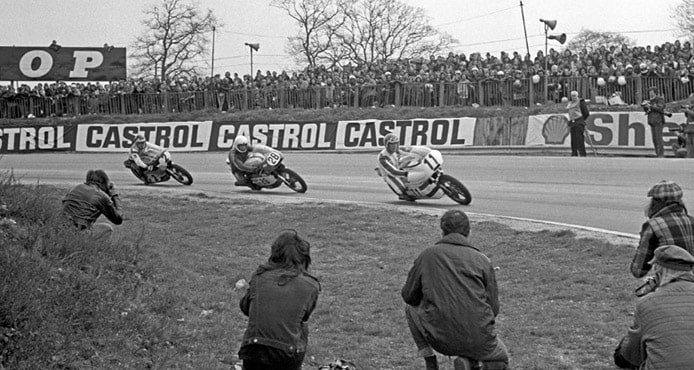
War years
At the start of the war years, Wakefield was a member of the City of London territorial force. A strong believer in the discipline and skills the military instils he became an Honorary Colonel with a new battalion founded in 1915 from white-collar workers. The 26th Battalion, the Royal Fusiliers. Around the same time, In the autumn of 1915, Wakefield took a side step into civic life when he took up the mantle of Lord Mayor of London.
It wasn’t until near the end of the war in January 1918 that C.C. Wakefield and Company was incorporated with 3 shareholders.
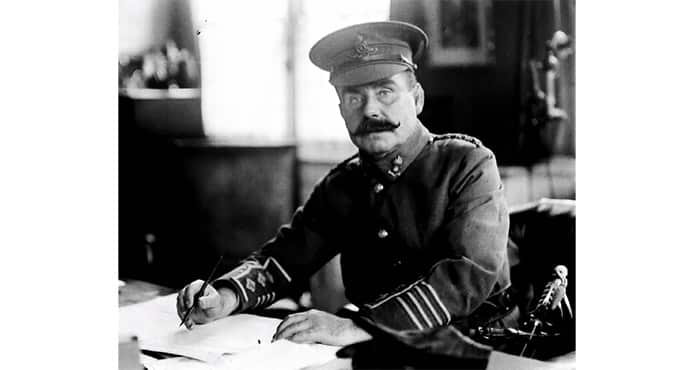
Post War
Though much of Wakefield’s post-war time was taken up by his many philanthropic projects, his love for sport and pushing the boundaries remained relentless. As well as sponsoring countless sporting events he also backed a number of endurance challenges. Maybe most notable was his financial backing and fuel oils to Amy Johnson who became the first woman to fly from England to Australia in 1930. He also financed the purchase of Jean Batten’s Percival Gull Six in which she flew from Lympne to New Zealand, in 1936.
Honours and Titles
Charles Wakefield was presented with a knighthood for his work in the community back in 1907. On 21st January 1930, Wakefield became Baron Wakefield of Hythe, this was advanced to Viscount Wakefield of Hythe just 4 years later on 28th June 1934. And was one of only 6 people during Edward VIII’s reign to be appointed GCVO (A Knight of the Grand Cross of the Royal Victorian Order).
The Castrol Legacy
By 1960 the brand name eclipsed the founder’s name with the oil widely recognised as Castrol. As a result, C.C. Wakefield and Company was officially changed to Castrol Ltd. In 1966, Castrol was acquired by Burmah Oil becoming Burmah-Castrol. It remained Burmah-Castrol until 2000 when Burmah-Castrol merged into BP with Castrol remaining the Brand. The company remains at the cutting edge of lubricant technology, opening a state-of-the-art research facility in Bracknell, and developing the product line to include oils specifically for car manufacturers’ individual engines.
Eulogy
Throughout his life, Charles Wakefield was an incredibly generous man who touched many lives. He was a huge philanthropist who worked relentlessly to help charities through patronages, board positions, sponsorships, and investments. A man keen to make the world a better place for those less fortunate or disadvantaged.
Charles Wakefield sadly died in Buckinghamshire on 15th January 1941 (aged 81) buried 3 days later at Spring Lane Cemetery near his adopted home of Hythe. His legacy continues.
To read more about Charles Wakefields’ legacy and the global brand he developed, see our blog on ‘The History of Castrol‘
April 30, 2024
